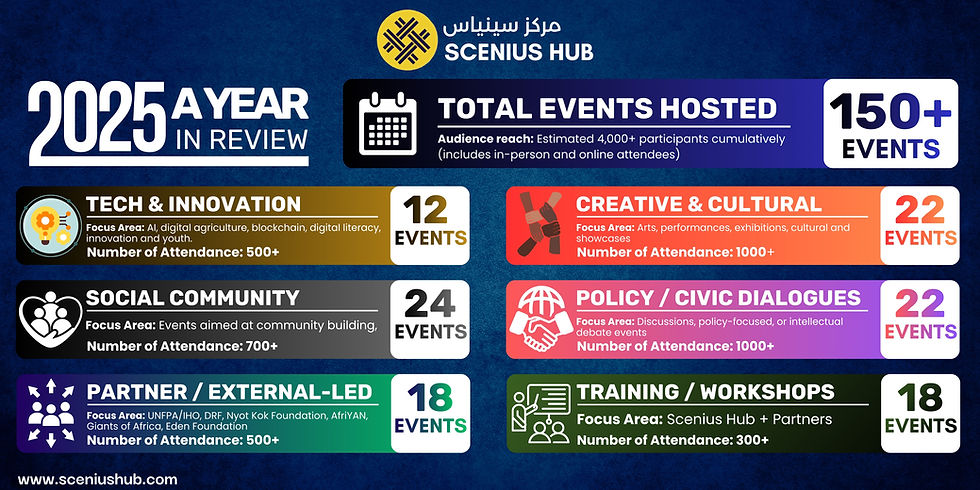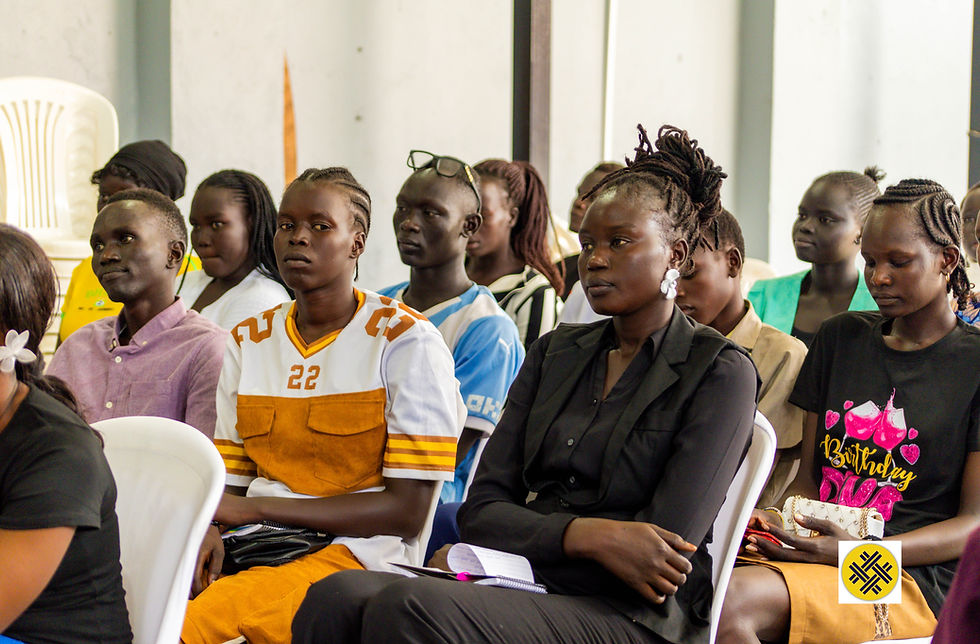Emmanuel Kembe: A Voice of Peace and Unity in South Sudanese Music
- Poni Henry
- Feb 24, 2025
- 3 min read
Emmanuel Kembe is a celebrated South Sudanese reggae musician whose songs carry
powerful messages of peace, unity, and social justice. With a career spanning several decades, Kembe has used his music to inspire and advocate for a better South Sudan. His unique fusion of reggae, Afro-fusion, and traditional South Sudanese sounds has earned him recognition as one of the country's most influential artists.
Early Life
Emmanuel Mark Kembe was born on January 9, 1969, in Wau, Western Bahr el-Ghazal, in what was then part of Sudan and is now the Republic of South Sudan. Growing up during a time of political and social turmoil, Kembe turned to music as a way to express the struggles of his people.
Between 1994 and 2005, he lived in exile due to the Second Sudanese Civil War. During this period, he continued to develop his musical style, blending reggae influences with African rhythms to create a sound that resonated with both the South Sudanese diaspora and the people back home.

Music Career
Kembe’s music is more than just entertainment; it is a tool for advocacy and social change. His lyrics often speak about the hardships faced by South Sudanese people, including war, displacement, and political instability. Songs like Together and Celebrate have become anthems for those who long for a better future. Kembe's music career took off when he released his first album, Shen Shen, which introduced his unique style to a broader audience.
In May 1, 2006, Kembe co-founded Kembe Music International (KMI) in Cary, North Carolina, USA, alongside Jeffrey Campbell. The organization was registered as a limited liability company in April 2008, with KMI Juba being registered in April 2010. KMI aims to foster awareness of the diversity of South Sudanese music cultures through recorded catalogs that provide cross-cultural understanding of the history and contemporary experiences of the people of South Sudan.
Themes and Contributions
Throughout his career, Emmanuel Kembe has remained committed to using music as a tool for social transformation. Some of the key themes in his music include:
Patriotism: His songs celebrate the beauty and culture of South Sudan, encouraging unity and national pride.
Peace & Reconciliation: He has used his music to call for peace, especially in times of conflict, urging South Sudanese communities to embrace harmony and coexistence.
Social Awareness: Kembe’s music touches on issues such as corruption, tribalism, and the challenges faced by young people in South Sudan.
As a peace activist, Kembe has performed in numerous concerts focused on national healing and unity. His performances have been featured in events organized by the United Nations (UN) and the United Nations Mission in South Sudan (UNMISS), where he played a significant role in peace-building efforts.
One notable event was Comedy for Peace, organized by UNMISS, where Kembe performed to promote peace and reconciliation through art and entertainment. His participation in peace concerts has helped to bring people together and encourage dialogue in a country that has faced deep divisions.

International Recognition and Legacy
Emmanuel Kembe’s music has reached audiences beyond South Sudan, earning him a reputation as a cultural ambassador for his country. His influence extends across East Africa, with performances in Uganda, Kenya, Ethiopia, and beyond.
Through Kembe Music International, he continues to support upcoming musicians and advocate for greater investment in South Sudan’s music industry. His legacy as an artist, activist, and cultural leader remains strong, inspiring future generations to use music as a force for change.

Challenges in the South Sudanese Music Industry
Many South Sudanese artists have faced challenges such as limited access to professional recording studios, political restrictions on artistic expression, and an underdeveloped music industry. Despite these obstacles, they continue to use their platforms to share their stories and connect with audiences, fostering cultural expression and creativity.
Conclusion
Emmanuel Kembe is not just a musician; he is a voice of resilience, peace, and unity for South Sudan. His journey to becoming a national icon highlights the power of music in shaping society. As South Sudan continues its journey towards stability and progress, artists like Kembe will remain essential in promoting healing and national pride.




Comments